
Dear Aunt Martha,
Unpredictable circumstances have led me to have a lot of free time on my hands this summer, and I am trying to find ways to spend it productively. Since I enjoy reading to pass time by, do you have any book recommendations for someone who is trying to not only academically, but holistically grow? I want to end this summer as a new and rejuvenated person!
Best,
A Motivated Student
Dear Motivated Student,
Summer is a wonderful time to catch up on books you’ve been wanting to read and it’s a great opportunity to take care of yourself, open your mind, and learn new things. We have 5 book recommendations for you, which we hope can help you on your personal journey of growth during this time!
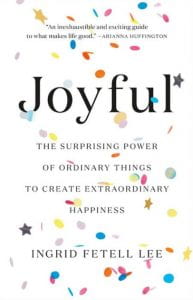 1. Joyful: The Surprising Power of Ordinary Things to Create Extraordinary Happiness
1. Joyful: The Surprising Power of Ordinary Things to Create Extraordinary Happiness
By Ingrid Fetell Lee
Through research, designer Ingrid Fetell Lee has uncovered the linkages between the small changes you can make in your personal environment and the remarkable happiness that they can bring to your life. Looking out toward the physical space you inhabit, and taking time to notice the effect it has on you, can be just as effective as practicing acts of looking inward, such as through meditation. Lee emphasizes the importance of harnessing a safe and positive environment, and the tremendous benefits such a perspective can have on your mindfulness and productivity. And with the increased time that we all have spent indoors recently, Lee’s advice and knowledge can help us construct a space of comfort and joy, enabling us to have better well-being.
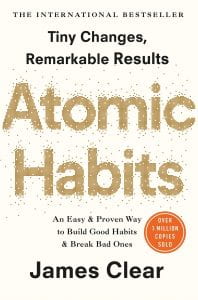 2. Atomic Habits: An Easy & Proven Way to Build Good Habits & Break Bad Ones
2. Atomic Habits: An Easy & Proven Way to Build Good Habits & Break Bad Ones
By James Clear
Free time can allow yourself the headspace to build some new habits that you may not have had time to delve into before. Author James Clear identifies that it is not the individual who is at fault for bad or unbreakable habits; it is the system, or method, you employ to carry them out. He is also able to distill the complex topic of constructing a habit into simple behaviors that can be used to work your way to achieving your goals. Atomic Habits will help you set up the time to develop new habits, hurdle the aversive lack of willpower, cultivate an environment that facilitates success, and more. Habits are facets of our lives that we apply every day, and Clear’s expertise in this field can help you achieve success through building habits that are constructive and productive.
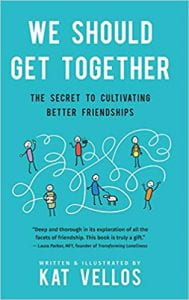 3. We Should Get Together: The Secret to Cultivating Better Friendships
3. We Should Get Together: The Secret to Cultivating Better Friendships
By Kate Vellos
Social isolation has led many of us to feel, well, isolated. Luckily, experience designer Kat Vellos has put together a book that contains the ways to counter what she identifies as the four main setbacks against adult friendships. These are: relocation, degree of busyness, relationship demands, and the negative impacts of social media on people’s sense of intimacy. With these four concepts in mind, Vellos has proposed a series of methods that can improve social interactions, reduce digital dependency, pinpoint the relationships that are most important, and develop a healthy balance between social and work life. We all strive to have supportive and close groups of people we can trust — and Vellos has provided the methods by which we can achieve them.
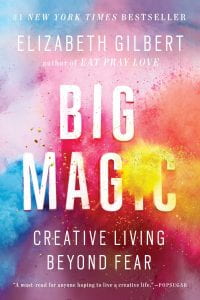 4. Big Magic: Creative Living Beyond Fear
4. Big Magic: Creative Living Beyond Fear
By Elizabeth Gilbert
Author Elizabeth Gilbert discusses in this book how to harness our curiosities and fuel inspiration. Additionally, she helps with overcoming the fears and roadblocks that prevent some from tapping into their creative selves, identifying habits and approaches that can make realizing your creative potential a lot more attainable. Current times have led to extreme restrictions and limitations on “normal” lives, and tapping into unrealized creativity can be a useful skill in order to make the most out of the situation. Whether this be starting up a new hobby, setting off to learn something new, or just be productive when passing time, Gilbert’s book can help us achieve these goals and lead more creative lives.
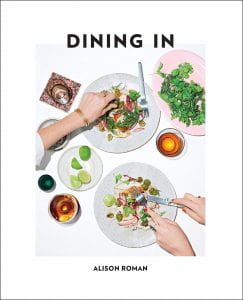 5. Dining In: Highly Cookable Recipes
5. Dining In: Highly Cookable Recipes
By Alison Roman
For anyone, and especially college students, being able to cook is an invaluable skill. Alison Roman’s Dining In presents a variety of recipes that are delicious yet cost-effective, which cater to even the most fundamental of home chefs. On top of providing easy recipes, Roman also offers advice to help add flavor to your meals as well as reduce time in preparation. This book is great for anyone who is looking to save money while also being able to provide themselves with delicious and nutritious meals, making cooking at home a pleasurable rather than tedious experience.
We hope that these book recommendations can inspire you to grow and develop into a version of yourself of which you are proud. Remember, cultivating who you are is a process that takes time so make sure you give yourself the love and patience that you need to grow. It’s all about the journey, not the end result!
As always, stay safe and healthy!
Take care,
Aunt Martha







